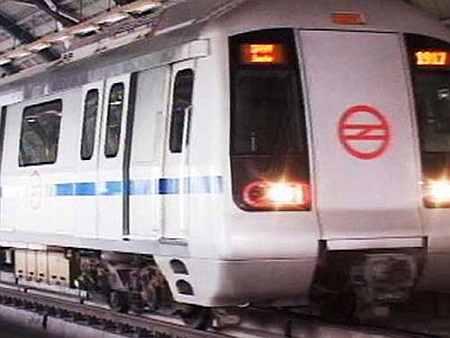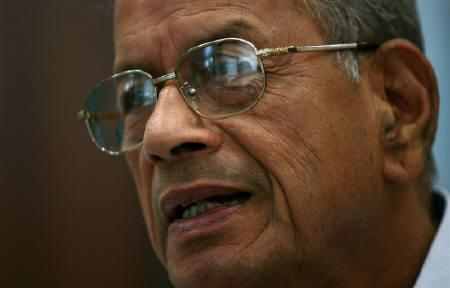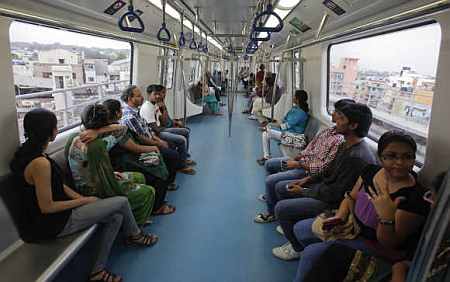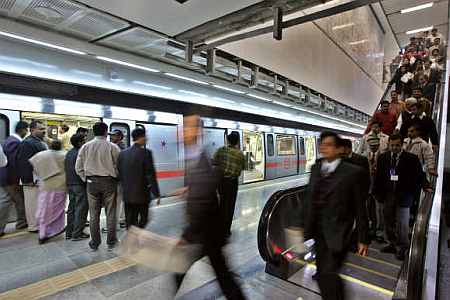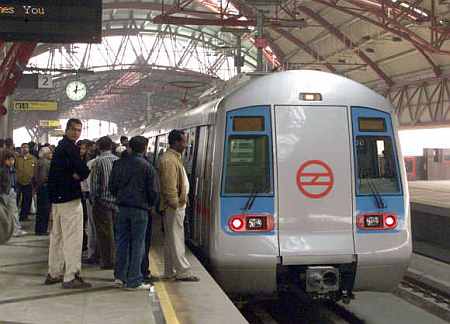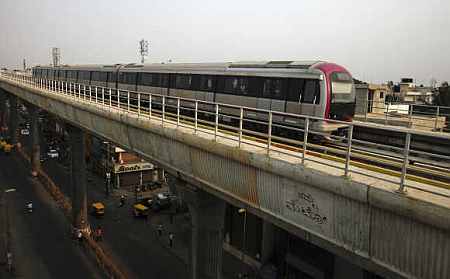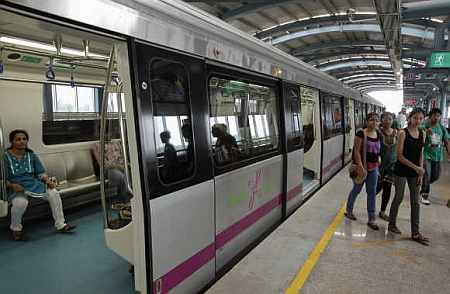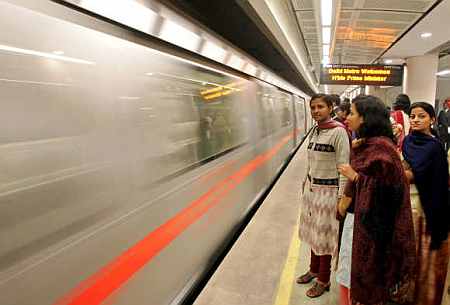 | « Back to article | Print this article |
Why metros are going off-track
Chiefs of metro rail corporations, operating or implementing rapid transport systems in various cities, are reported to have demanded that they be freed from the regulatory control of the Indian Railways.
All metro rail corporations come under the administrative control of the urban transport ministry at the Centre, but all their technical issues fall under the supervision of the Indian Railways.
This has been a bone of contention for the past several years and it is now time the Union government settled the dispute for faster, smoother and more efficient execution of metro rail projects planned for major cities in the country.
Click NEXT to read more...
Why metros are going off-track
In the late 1990s, an embarrassing situation was averted when the Delhi Metro chief E Sreedharan's proposal to introduce standard gauge tracks for its network in the Capital was shot down by the Indian Railways.
Sreedharan was reportedly so upset over the Indian Railways' insistence on the use of broad gauge tracks that he had put in his papers. Good sense, however, prevailed on the Union government and it persuaded Sreedharan to stay on and accept the Indian Railways' proposal for broad gauge tracks.
There was, however, a deal. In the second phase of the project, it was agreed, the tracks to be used would be of standard gauge. It was a compromise formula that defied all logic.
Click NEXT to read more...
Why metros are going off-track
If standard gauge was indeed the preferred mode of tracks used internationally, there was no need to accept the Indian Railways' demand for broad gauge tracks.
Apparently, the Indian Railways wanted seamless connectivity between its own tracks (which are of broad gauge) and the Delhi Metro tracks. This was spurious logic.
Yet, Sreedharan had to submit to the Indian Railways' demand simply because it was the technical authority to decide on such matters. However, Sreedharan, a product of the Indian Railways himself, won a tactical victory by persuading the authorities to agree to standard gauge for Delhi Metro from the second phase onwards.
Indeed, all other metro networks now under operation (barring the Kolkata Metro, which is under the Indian Railways) and execution are now using standard gauge tracks.
Click NEXT to read more...
Why metros are going off-track
Delhi Metro, however, continues to be perhaps the only network in the world that follows two gauges for its tracks, thanks to the Indian Railways' insistence on the use of broad gauge tracks for its first phase.
The Bangalore Metro had a different problem with the Indian Railways. It has been arguing with the railway authorities in New Delhi that it should not enforce on metro bridges the construction parameters that are used for goods train haulage.
Goods trains always have a higher tonnage than that of passenger trains. Since the Indian Railways carries goods as well as passenger trains using the same track, all railway bridges are built to specifications that can withstand the weight of the heavier goods trains. This is logical.
Click NEXT to read more...
Why metros are going off-track
But there is no reason why it should insist on the same condition for bridges that are constructed for metro projects, which will carry only passenger trains and with fewer coaches than the ordinary passenger trains of the Indian Railways.
Yet, the Bangalore Metro had to wait for months before it could get the necessary permission for constructing bridges for its network.
The problem has manifested itself in other ways. The Indian Railways is authorised to issue safety certificates to all metro networks before they can start service in any new segment after completing construction.
Obtaining a safety certificate from the Indian Railways, officials from the metro networks say, is a throwback to the Inspector Raj.
Why metros are going off-track
The safety commissioner's office, it seems, has no proper infrastructure of its own to certify the safety of a metro network. It insists on a declaration from the metro network that it has observed all the safety standards.
A routine check is conducted, but in essence it is a certification of a declaration made by the metro network. If that is how the metro networks perceive the safety certification process, there is something seriously wrong in the way the safety standards of the rapid transport systems in the cities are being observed.
There is only one way this problem can be tackled. The office of the safety commissioner should be adequately strengthened so that it can on its own certify the safety standards, instead of merely endorsing the declaration made by the network operator.
Click NEXT to read more...
Why metros are going off-track
Safety in metro travel is not something that can be taken lightly. Self-declaration is necessary, but there has to be an active and effective safety commissioner which can undertake its own independent checks, instead of relying on the operator's declaration.
It is perhaps necessary to create a safety commissioner's office for each of the metro networks, so that the office of the safety commissioner of the Indian Railways is not overburdened with this responsibility.
Let there be uniform standards, but surely there could be more than one regulatory office to certify that the network operator has met the safety requirements based on those norms.
Click NEXT to read more...
Why metros are going off-track
Indian Railways need not continue to be the technical regulator for metro networks in different cities. After all, it is also a network operator and it should not be a regulator for other metro network operators.
If necessary, a new authority should be set up with offices in different cities with metro network plans.
The new authority could issue regulatory clearances with uniform standards followed across the country.
